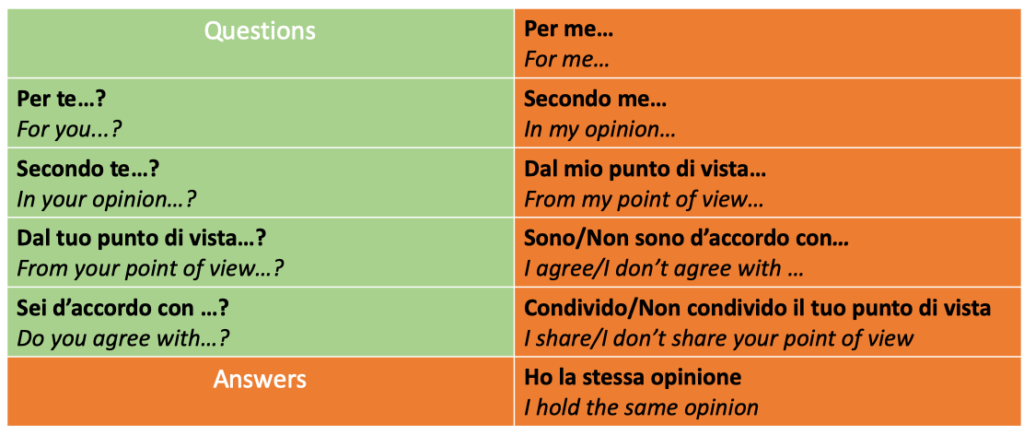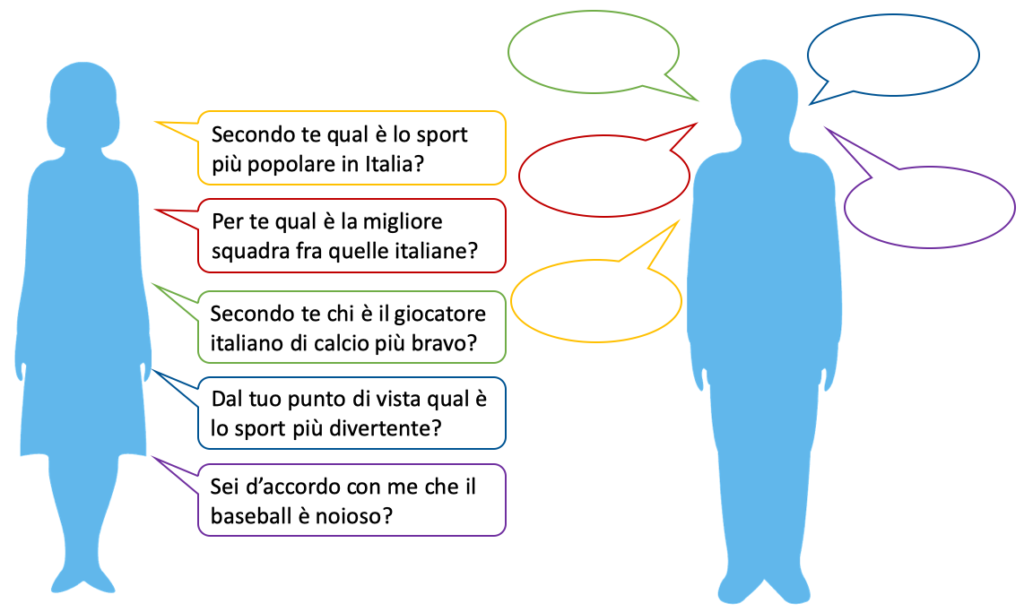| GRAMMAR
Il più e il meno 
If the phrases più/meno di are used to compare two elements (Antonio è più alto di Marco ‘Antonio is taller than Marco’) il, la, i, or le with più/meno di express instead the highest or lowest degree of quality of a person, an animal, or a thing within a group (Antonio è il più alto della classe ‘Antonio is the tallest of the class). This second construction designates ‘the most’ or ‘the least’ and it is simply formed by using a definitive article with più di or meno di. The article (il, la, i, or le) must agree with the noun to which it refers.
The following constructions are used in Italian:
- definite article / più / adjective / di (‘the most/-est … of’): Matteo è il più gentile di tutti (Matteo is the kindest of all); Matteo è il ragazzo più gentile di tutti (Matteo is the kindest boy of all)
- definite article / meno / adjective / di (‘the least/-est … of’): Mario è il meno competitivo della classe (Mario is the least competitive in the class), Mario è lo studente meno competitivo della classe (Mario is the least competitive student in the class)
The preposition di (or its contraction with an article where necessary), equivalent to the English of (or in, in this specific case), introduces the group of people, animals, or things (di tutti; della classe). The prepositions fra, or its equivalent tra (both meaning among), can replace di: Il cane è il più fedele fra/tra [= di] tutti gli animali (The dog is the most faithful among all animals). Sometimes instead of di, like in English, in (or its contraction with an article where necessary), can be used: Maria è la bambina più piccola nella stanza (Maria is the smallest girl in the room), Lucia è la più bassa nella sua famiglia (Lucia is the shortest in her family).
When the second element is implied rather than clearly expressed the prepositions di, tra/fra, or in are obviously not used: Lorenzo è il più gentile (Lorenzo is the kindest), Maria è la più simpatica (Maria is the nicest).
Il Migliore and Il Peggiore 
A few adjectives, next to the regular ones, also have irregular forms when expressing the highest or lowest degree of quality.
il più buono/bravo (di) = migliore (di )
the best/greatest (of) |
il meno buono/bravo (di) or il più cattivo (di) = peggiore (di )
the worst (of) |
The simple expression the best/greatest (of) can be rendered in Italian with il (la, i, or le) più buono/bravo (di), but generally is translated as
- il/la migliore (di) (sing.), i/le migliori (di) (pl.): La pizza di Franco è la migliore (Franco’s pizza is the best), Tu sei il migliore di tutti (You are the best of all)
The simple expression the worst (of) is rarely translated in Italian with il (la, i, or le) meno buono/bravo (di), but preferably with the construction
- il/la peggiore (di) (sing.), i/le peggiori (di) (pl.) Ieri ho mangiato la peggiore pizza della mia vita (Yesterday I ate the worst pizza of my life), Il prof. Allegri è il peggiore dei miei professori (Prof. Allegri is the worst of my professors)
Also in these cases, the prepositions fra or its equivalent tra can replace di: Il cane è il migliore fra/tra [= di] tutti gli animali (The dog is the best among all animals). Sometimes , like in English, the preposition in (or its contraction with an article where necessary) can be used as well: Lui è il peggiore studente in tutta la scuola (He is the worst student in the whole school). |
 The questions above are addressed directly to the second person singular (tu ‘you‘ sing), but you can ask the same question to voi (‘you all‘): Per voi …? ‘For you [all])…?’ Dal vostro punto di vista…? ‘From your [all] point of view …?’ and so on. The same thing happens with the answers, In fact the same constructions work for io as well as for all the persons: Per noi… (For us...) Secondo loro... (In their opinion…), and so on.
The questions above are addressed directly to the second person singular (tu ‘you‘ sing), but you can ask the same question to voi (‘you all‘): Per voi …? ‘For you [all])…?’ Dal vostro punto di vista…? ‘From your [all] point of view …?’ and so on. The same thing happens with the answers, In fact the same constructions work for io as well as for all the persons: Per noi… (For us...) Secondo loro... (In their opinion…), and so on.